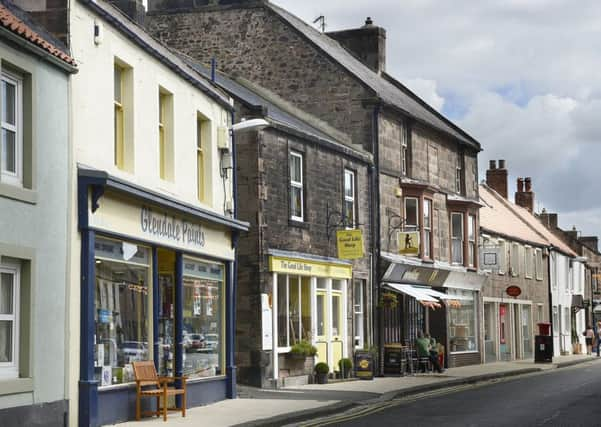Glendale History Society


At Alnwick Castle, a large block of accommodation and a refectory for the serving staff were left vacant. The late Duke of Northumberland realised that these empty buildings would serve well for students. After World War II, the Alnwick Teacher Training College was established there.
When teacher training in the UK slowly incorporated into the university-based higher education system in the 1970s, a new enterprise moved in from the USA, a branch of the St Cloud State University (SCSU), from Minnesota, so we do have a university in North Northumberland.
Advertisement
Hide AdAdvertisement
Hide AdSome people will have come across students taking parts of their university courses in Alnwick. Glendale Local History Society was treated to a lively account of how this came about from Wade Sherman, who administers the programme at Alnwick.
SCSU was founded long before this venture, in 1869, at St Cloud, a town of around 100,000 people on the Mississippi river, North of the twin cities of Minneapolis/St Paul.
It was created as a State University, which means that it is committed to providing higher education at affordable prices (for the United States) to students from the state, and it is the second largest State University in Minnesota. It also emphasises giving support for students in all kinds of ways.
These days it has over 15,000 students, nearly 10 per cent of whom come from outside the US, notably Mexico, Somalia and the Hmong communities of South East Asia. The university has won awards for its provision for students from outside the US, but it remains committed to extending the experience of local students.
Advertisement
Hide AdAdvertisement
Hide AdOur speaker explained that for many students, coming to St Cloud from deeply rural areas in Minnesota is quite a culture shock. Also, many American families in the Mid-West have little experience of anywhere else, and certainly not another country, so SCSU has built up links across the globe to provide residential study centre facilities, where students can widen their horizons and learn something about the world.
SCSU was one of the earliest US universities to create a network of such centres. The link with Alnwick came very early. SCSU’s idea was to open a centre in London, but who could resist the idea of a study centre in an ancient castle?
In the first year, the SCSU students shared the building with the final year of the teacher training college. Soon, after some refurbishment, around 100 students were coming to spend a year of their studies in Alnwick.
Initially, they had to look after their accommodation themselves, doing all the cooking and cleaning, as this helped to keep costs down. These days, with concerns about health and safety, staff are employed to do this work, creating jobs.
Advertisement
Hide AdAdvertisement
Hide AdIn recent years, around 63 students have been coming for a slightly shorter programme. They take courses in British History, Contemporary Britain, and British Culture. This last involves visits to various places so the students don’t imagine that everywhere in our country is like Alnwick.
We reflected on the challenge the students must face in grasping our long history and its active presence in our lives. Staying in a castle is surely a good place to start.
Our speaker also explained that students are encouraged to make links with Alnwick people, perhaps meeting a local family, or participating in events such as the Shrove Tuesday football match. Groups go to Wooler as a base for hiking.
He noted that a key task for the staff team was to train students about alcohol, available to them in the UK, but not until they are 21 in the US. The Alnwick SCSU campus, however, remains an alcohol-free zone.
Advertisement
Hide AdAdvertisement
Hide AdAs in the UK, publicly-funded higher education in the US is under pressure to reduce costs, while students have to find the funds to pay for this rich experience. Changes are in progress that mean students will come for shorter and more intensive courses.
Hopefully, this will not reduce the great value of experiencing another country and realising that there are many different ways to live in this world.
The next talk is by Dr Stephen Platten on the Alnwick to Coldstream Railway, at 7.30pm, on March 14, at the Cheviot Centre, Wooler.